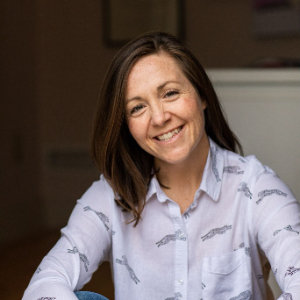
Mistakes = Confidence
We live in a people-pleasing society that thrives on efficiency and perfection. It's a lot to live up to as a human! I have learned in my adult life, especially as a parent, that celebrating mistakes is one of the best ways to lower stress and model confidence in trying new things for my children. It's easier said than done when it feels so good to have something just right because that's when we receive praise and acknowledgment. But we can do things differently with our kids. We can practice calling out our mistakes, and theirs, in a kind and loving way. This helps show our youngsters that mistakes are part of being human. Not only that, it naturally cultivates more acceptance of others and builds confidence to try new things. This month, we discuss ways to experience our mistakes and nurture self-efficacy and confidence.
Mistakes = Confidence
Letting go of perfection is tough and requires great internal strength and awareness. This is because you won’t receive outward recognition or acknowledgment for mistakes, you might even get punished. And yet, all of the research points to how when we nurture mistakes, we experience great benefits to our social and emotional health and well-being.
Here are a few benefits we see when we recognize, and even celebrate our mistakes:
- We build confidence
- We feel less stressed and anxious
- We are more accepting
- We feel less judgmental and more humble
- We have more space to be creative
- We build resilience
For me, understanding the benefits motivated me to go inward and do this work. Like everything else I teach, celebrating mistakes is a practice! It requires intentional work and awareness. Once I started practicing, I could feel the benefits immediately, so like many of the practices I teach, they are self-rewarding and it's hard to turn back once you experience the impact.
So take moments every morning to set an intention for the day. You can say it to yourself 5 times, or you can write it down on a piece of paper and stick it to the bathroom mirror. An example would be: "Today, I will celebrate and laugh at my mistakes, with kindness and curiosity." Remember, this work starts with you and when you can model this for your children and students, they will immediately catch on and start finding more acceptance of your mistakes, their own, and others. This is cultivating a sense of humanity and compassion.
Imagine a world where we all stopped relying on external forces to give us feelings of accomplishment, and kept a steady focus on inward security, confidence, and self-efficacy. That is my hope for all people, starting with our children.


